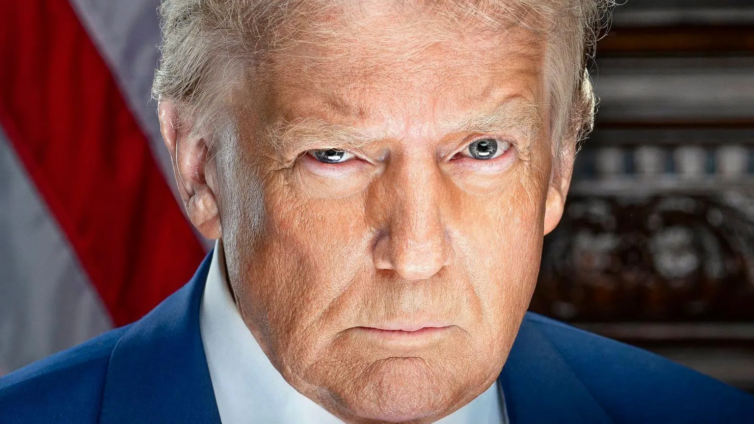Donald Trump has stirred fresh controversy by stating he is "not joking" about wanting to serve a third term as President of the United States. While the U.S. Constitution clearly limits a president to two terms, some of his supporters believe there could be ways around this restriction.
In an interview with NBC, Trump was asked about the possibility of running
for a third term. He responded, "There are methods which you could do
it." He added that "a lot of people want me to do it," but said
it was still early in his second administration. At the end of his second term,
Trump would be 82 years old, raising questions about whether he would want to continue
in "the toughest job in the country." He replied simply, "Well,
I like working."
This is not the first time Trump has spoken about extending his presidency.
In January, he told supporters it would be "the greatest honour" to
serve "not once, but twice or three times or four times." He later
said this was meant as a joke directed at the media.
The U.S. Constitution appears to make a third term impossible. The 22nd
Amendment states that no one can be elected president more than twice. Changing
this would require approval from two-thirds of both the Senate and the House of
Representatives, along with three-quarters of the state legislatures. While
Trump's Republican Party controls Congress, they do not have the numbers to
amend the Constitution. Meanwhile, the Democratic Party controls 18 of the 50
state legislatures, making any change highly unlikely.
Some Trump supporters claim a legal loophole could allow him to return to
the White House. They argue that the 22nd Amendment bans a person from being
"elected" more than twice but does not explicitly prevent them from
"succeeding" into the role. One theory suggests Trump could run as
vice president alongside another candidate in 2028, possibly his current vice
president JD Vance. If that candidate wins and resigns, Trump could take over
as president through succession.
Steve Bannon, a former Trump adviser, has said he believes Trump will
"run and win again," and suggested there are "a couple of
alternatives" to work around the term limit. Additionally, Republican
Representative Andy Ogles introduced a resolution in January proposing an
amendment to allow presidents to serve three non-consecutive terms. If passed,
this would make Trump the only former president eligible to run again. However,
given the high bar for constitutional amendments, this proposal is considered
unrealistic.
Democrats strongly oppose the idea of Trump serving beyond his current term.
Representative Daniel Goldman called it "yet another escalation in his
clear effort to take over the government and dismantle our democracy." He
urged Republican lawmakers to reject the idea publicly. Some Republicans have
also voiced their concerns. Senator Markwayne Mullin of Oklahoma stated he
would not support any attempt to change the Constitution unless the American
people demanded it.
Legal experts have dismissed the idea of a loophole. Derek Muller, an
election law professor at the University of Notre Dame, pointed to the 12th
Amendment, which states that "no person constitutionally ineligible to the
office of president shall be eligible to that of vice-president." He
believes this rule makes Trump ineligible to be a vice-presidential candidate
after serving two terms as president. Similarly, Jeremy Paul, a constitutional
law professor at Northeastern University, said there were "no credible
legal arguments" to support a third term for Trump.
Historically, only one U.S. president has served more than two terms.
Franklin Delano Roosevelt was elected four times, serving from 1933 until his
death in 1945. His presidency spanned the Great Depression and World War II,
which led to calls for stability in leadership. After Roosevelt, the 22nd
Amendment was passed in 1951 to prevent future presidents from serving more
than two terms.
Trump's remarks have reignited debate over presidential term limits. While
some of his supporters continue to explore ways to extend his presidency, legal
and political obstacles make it highly unlikely.




Your name
Apr 4, 2025katana